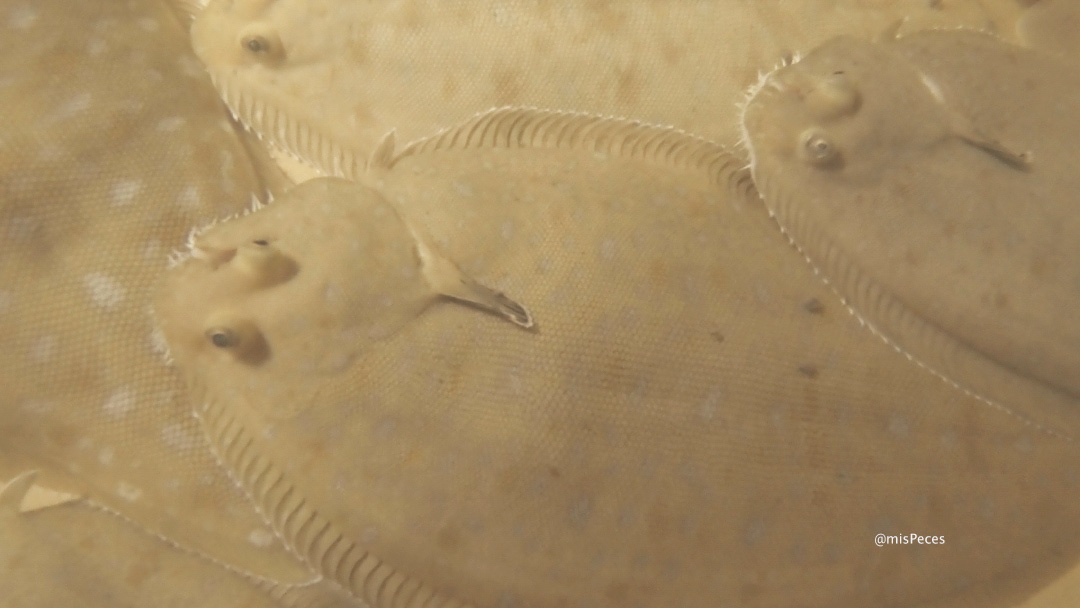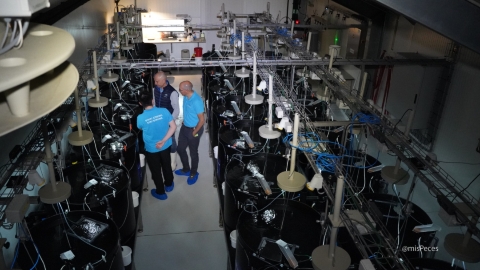
An international team of scientists specialising in aquaculture development is investigating whether epigenetics could hold the key to understanding the reproductive dysfunction seen in captive-bred Senegalese sole (Solea seneganensis). For decades, efforts to domesticate this valuable species have been hampered by a critical issue: male fish reared in hatcheries (F1 generation) suffer from fertility problems and lack essential reproductive behaviours, such as courtship.
Among the various research avenues being explored, epigenetics has emerged as one of the most promising in recent years. According to a study published in the scientific journal Biomolecules, reserchers from the University of Cadiz (Spain), in collaboration with the University of Edinburgh (UK) and Montpellier University (France), have shown that DNA methylation, an epigenetic mechanism regulating gene expression, significantly impacts the reproductive capacity of fish in captivity. Male fish born and raised in controlled environments exhibit much higher levels of DNA methylation than their wild counterparts.
These altered methylation patterns are particularly evident in key reproductive genes such as dmrt2, sox9a, and fshr, which are responsible for essential processes like sexual differentiation, sperm production, and gonadal development.
This excessive methylation, absent in wild Senegalese sole, acts as a molecular brake blocking the activation of these crucial genes and ultimately impairing reproduction.
The researchers suggest that the artificial conditions of hatcheries, including constant temperatures and highly controlled environments, play a decisive role in disrupting natural epigenetic patterns. By contrast, wild fish exposed to variable environmental conditions do not exhibit these abnormalities.
Potential Applications of These Discoveries
Building on these findings, it could be interesting to propose critical measures to mitigate the problem. One approach involves adjusting hatchery conditions by introducing temperature fluctuations and other environmental stimuli to better mimic natural habitats. Another suggestion is to use epigenetic biomarkers to identify and select breeders with greater reproductive potential.
One of the most innovative strategies involves the application of epigenetic therapies, such as DNA methylation inhibitors, to reverse the negative effects in F1 males. These treatments could utilise chemical agents already used in medical research, adapted specifically for aquaculture purposes. Alternatively, targeted molecules that act precisely on the affected genomic regions, minimising unwanted side effects, could be developed and administered in controlled environments to optimise their effectiveness and safety for large-scale applications.
Such therapies could be administered in a controlled manner, either through enriched diets or water treatments, during critical stages of gonadal development when methylation patterns are more dynamic and susceptible to change.
Before scaling up these solutions, pilot trials in hatcheries will be necessary. These trials, conducted with small batches, will allow scientists to refine dosages, delivery methods, and exposure times. This careful approach is essential to ensure the treatments are both effective and economically viable, while maintaining environmental sustainability.


